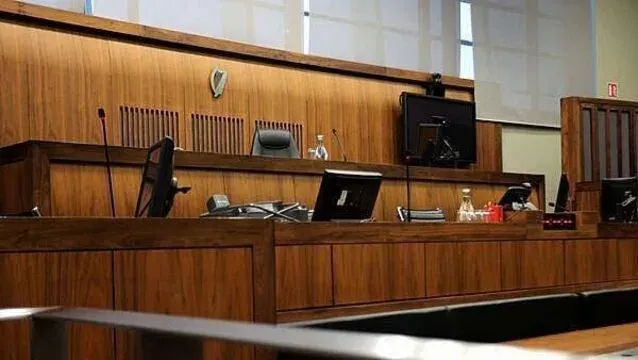A 73-year-old American man convicted of passport fraud involving the stolen identities of two deceased Irish infants has been deported to the United States after serving a prison sentence in Ireland.
Randolph Kirk Parker, originally from Michigan, was escorted by Gardaí to Dublin Airport and placed on an afternoon Aer Lingus flight to Chicago on Thursday, following his release from Cork Prison earlier that morning. Parker was met at O’Hare International Airport by officers from the US Immigration and Customs Enforcement (ICE), where he is now back under the jurisdiction of US authorities.
Parker was sentenced in Cork Circuit Criminal Court in April 2024 to three and a half years in prison, with 15 months suspended, after pleading guilty to five charges. These included four counts of providing false information to obtain Irish passports in the names of two children who had died in infancy, and one charge of possessing a false Irish driving licence.
Identity Fraud Uncovered by Facial Recognition Technology
The elaborate fraud was discovered by officials in the Irish Passport Service’s integrity unit, who were alerted by facial recognition software that flagged a match between two separate passport applications. The names on the applications were Geoffrey Warbrook, with a Dublin address, and Philip Morris, registered at Dunbeacon, West Cork.
Upon investigation, it was found that both Warbrook and Morris had died as infants in 1952.
Parker, who had assumed both these identities, was arrested at the Cork Passport Office in September 2023 when he arrived to collect one of the fraudulent documents. He had been in custody since then, pending trial and sentencing.
Concealed Identity for Over 35 Years
Following his arrest, Parker initially refused to disclose his true identity, but an Interpol inquiry led to the involvement of US intelligence agencies. Fingerprint analysis confirmed he was Randolph Kirk Parker, who had arrived in Ireland through Shannon Airport in 1988 using a legitimate US passport.
Despite entering the country under his real name, he never used it again in Ireland. Gardaí found that he had been living under the alias Ray Travis, using it to open bank accounts and conduct other personal business.
The case has drawn comparisons to past instances of passport fraud involving stolen identities of deceased Irish citizens, prompting renewed scrutiny of Ireland’s passport system, though security measures such as facial recognition software have been significantly enhanced in recent years.
Background and Legal Proceedings
Parker, a graduate of Michigan State University, where he earned a degree in television and radio in 1973, told Gardaí little about his motivations. However, during court proceedings, his barrister Brendan Kelly SC stated that Parker had initially come to Europe for business in the 1980s. After experiencing visa difficulties, he was reportedly advised by a business associate to consider using the Irish passport system to regularise his stay.
The court heard that Parker went to considerable lengths to forge a stable life in Ireland under false identities. In addition to obtaining the passports, he had also acquired an Irish driving licence using the name Philip Morris.
Despite the gravity of the offences, Parker cooperated fully with the judicial process. He did not contest the charges and made no appeal against the sentence imposed. Speaking after his release, his solicitor Frank Buttimer said Parker had phoned him from the airport to thank him and inform him of his deportation.
“He has a very calm demeanour. Nothing seemed to faze him,” Buttimer remarked. “Arrest, charge, and sentence, which he accepted without question and which he didn’t appeal. He is unquestionably one of the most unusual clients I have come across in my 40 years as a criminal defence lawyer.”
Deportation Signed by Minister for Justice
Parker’s removal from Ireland followed a deportation order signed by Minister for Justice Jim O’Callaghan earlier this year. Gardaí from the Garda National Immigration Bureau (GNIB) executed the order upon his release.
The Department of Justice has reaffirmed its commitment to safeguarding the integrity of the Irish passport system and supporting international partners in upholding border security.
This case underscores the vigilance of modern identity verification systems and highlights the close collaboration between Irish and international law enforcement agencies, including Interpol and US Homeland Security.
Broader Implications
The discovery of Parker’s deception raises ongoing questions about the potential for identity theft using records of deceased individuals, an issue not exclusive to Ireland. In 2021, the Irish Government introduced enhanced verification protocols in response to previous instances of fraud. The system now employs biometric and facial recognition tools, which were instrumental in Parker’s case.
For Irish authorities, the Parker case serves as both a cautionary tale and a validation of new technological tools used in preventing identity-related crime.







